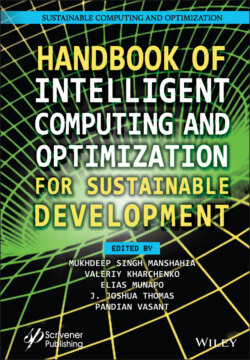Читать книгу Handbook of Intelligent Computing and Optimization for Sustainable Development - Группа авторов - Страница 112
4.6.3 Quantum Cryptography
ОглавлениеModern cryptography algorithms are based on the most important method of factorization against giant integers into their primes, which is tough to be solved. But modern cryptography is at risk of each technical growth of computing power in arithmetic to quickly reverse one-way functions like that of factorization massive numbers. So, quantum computing is introduced into cryptography, which ends up in the analysis of quantum cryptography. Quantum cryptography is the science that applies quantum mechanics to carry out cryptographic tasks. Quantum cryptography is one among the emerging topics within the sector of computer industry. Quantum cryptography brings quantum key generation, quantum key distribution, quantum public key encryption, and quantum random number generation. Quantum cryptography covers the weaknesses of recent digital cryptosystems, and eventually toward the longer term direction.
Figure 4.6 Visualization of a qubit state.
A classical machine device for quantum computing has a two-state system: 0 ↔ 1. The state of a quantum bit known as qubit is generally represented by the expression: α|0〉 + β|1〉, in which α and β are complex numbers which agree with |α|2 + |β|2 = 1. Thus, a qubit state is represented as a unit vector in a set of complex numbers which is known as the two-dimensional complex vector space shown in Figure 4.6. The vector may be expressed as α|0〉 + β|1〉 in quantum computing where and .
Quantum computing is totally different from most different branches of science therein it uses complex numbers in an elementary way. Quantum computing is driven through the language of complex vector space which is the set of vectors of a fixed length with complex entries. These vectors describe the states of quantum systems and quantum computers. The important role of complex vector spaces in quantum computing is described in the references [14–16].
